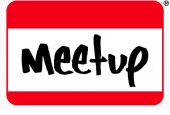Some songwriters are gung ho about getting a music publisher on board, without affording much thought to the pros and cons. Others are trepidatious. Still others are dead set against the idea. Whatever the case, the degree to which publishing can and should be important to an artist-writer’s long-term financial well-being cannot be overstated. Neither can the ramifications of failing to understand the hows and whys of it.
If you don’t quite get what this publishing thing is all about, you aren’t alone. It is a core yet enigmatic piece of the career matrix that extends into pretty well every aspect and level of the industry. In conjunction with the subject of copyright, which is inextricably tied to publishing, it is arguably the most complex matter for anyone in this business to grasp and presents lots of challenges, sometimes unforeseen.
I’m going to have more to say about the ins and outs of publishing in the future, but for now I’d like to pose a few things for artists to think about, both for those who are convinced they should keep their material and those who are open to handing it over to another party to represent.
Publishing companies, in acquiring rights to songs from writers or other publishers, obtain full or partial copyright ownership of the songs. Full ownership means a big piece of the revenue pie and almost full control over what, if anything, happens to the songs.
So, why would you sign a deal with a publisher when you could promote your material yourself or hire another type of representative (i.e., a song “shopper”) for less and still retain ownership of your material? Good question, to which the following might help you come to terms with what is best for you:
- Unlike song shoppers, publishers handle all the ins and outs of song administration and are set up to do so. That’s a plus for writers who don’t have the time or wherewithal to do it themselves.
- Publishing deals typically are for a considerably longer term than song shopper agreements and involve a bigger basket of rights as well as obligations. A shopper-artist arrangement will likely offer you more flexibility, both to work the material yourself and get out of the relationship.
- Overall, publishers tend to be much more widely connected in the industry than song shoppers (certainly more so than artists) and, if they are doing their job, promote material to all types of users in order to get as many placements for the material as possible. They may already have well-established relationships with many such users. A good percentage of song shoppers (like music producers and entertainment lawyers, for example) undertake the activity as a sideline, and any leads they might already have for potential placements may be limited to one or another area of usage.
- Users sometimes prefer to go to one or another publisher catalogue they believe has a good chance of having what they are looking for, rather than putting a call out for submissions or spending valuable time scouring the Internet for material.
- Most users want to deal with a party they know they can depend on to seal the deal properly and promptly. That usually means the party who has all clearance and signing rights, which copyright ownership automatically provides. If they have to deal with a writer they don’t know or, worse yet, an intermediary and the writer, they may immediately think “obstacle” and “delay”. This is especially critical when it comes to sync deals, which often need to be consummated within a matter of days (sometimes hours).
- Publishers take a bigger cut than shoppers; on the other hand, that makes for a greater financial incentive to put effort into working the material and perhaps helping you in other ways with your career.
- The responsible publisher helps the writer improve in their craft, or at least offers insights into how they can do so.
Food for thought. I welcome your comments and questions.





